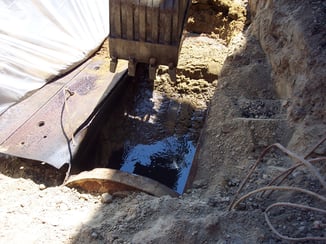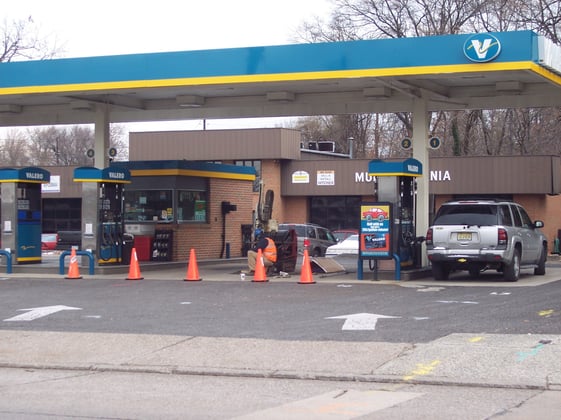How to Choose an LSRP? aka Hiring an LSRP
After 8 years of LSRP mandated involvement in the state of New Jersey we still are asked, how do I choose an LSRP?
If you are looking to retain an LSRP for an environmental issue, your property is either in the State of New Jersey or Massachusetts. New Jersey implemented the LSRP program to more or less privatize the cleanup of contaminated sites in New Jersey. The LSRP program is telling in the fact that only two states have LSRP programs.
You will need an LSRP is you own are connected (responsible) for a property in New Jersey that has found to contain contamination. Contamination at a site could be from your involvement or historic contamination that may not have ever been known or disclosed to the current owner prior to purchase. We work at a number of properties that require LSRP involvement due to contamination being left behind from a prior owner. The laws are that if you own the site even if you did not cause the contamination you are responsible. This is true for most all sites, it can have exceptions such as where contamination had been previously found under another owner and that owner is listed as the Responsible party (RP) according to the New Jersey Spill Act.

The New Jersey LSRP program started on May 7, 2009, then Governor Jon Corzine signed the Site Remediation Reform Act N.J.S.A. 58:10C – 1 ("SRRA") into law. One of the many provisions of the law establishes a program for the licensing of Licensed Site Remediation Professionals ("LSRPs") environmental professionals that have the experience with environmental impacted sites and who pass a proficiency exam. An LSRP has the responsibility for the oversight of environmental investigations and cleanups of applicable site in New Jersey. There was a phase in period of the program, which ran until May 7, 2012.
Bottom line, as of May 7, 2012, all applicable remediation’s (any commercial or industrial site as a rule) requires LSRP involvement in the state of New Jersey. Even sites that may have been undergoing remediation prior to May 7, 2009, without regard to when remediation was initiated, are required to find and retain a Licensed Site Remediation Professional (LSRP), as per N.J.S.A. 58:10B-1.3b(1) through (9).
An LSRP takes responsibility of navigating responsible parties through the NJDEP’s Site Remediation Program (SRP). In short, if you have contamination, you must determine the source, define the area of contamination, determine media affected by the contamination (soil, groundwater), evaluate for vapor concerns if applicable and then determine a course of action. Addressing contamination may mean physically addressing the contamination (soil excavation, chemical or biological treatment) or by permitting the contamination in place (deed restrictions, Classification Exemption Areas CEA).
Before the LSRP program an RP would receive a No Further Action (NFA), today you receive an RAO or Response Action Outcome (RAO) document that effectively replaces the No Further Action (NFA) letter previously issued by the NJDEP. On sites where an RAO includes the use of institutional or engineering controls, which are meant to be protective of public health, safety, and the environment, an LSRP must remain involved for any required post-RAO monitoring.
For sites where all applicable remediation standards have been met (meaning no institutional or engineering controls are required), then an unrestricted-use RAO is issued as the final remediation document, and the role of the LSRP is completed.

Hiring an LSRP is similar to engaging other professionals such as accountants or lawyers. As with any professional, you will find some are better than others. You need to look at the broad picture of what you will need with engagement of an LSRP. Meaning, any licensed LSRP will have the experience and background to perform the work as they hold the LSRP license. Outside of just experience you will also be incurring costs for fieldwork, such as drilling, soil and water sampling, excavation, geophysical surveys, air monitoring, the list can be long. These blue-collar services so to speak can dwarf the hourly rates of the professional (LSRP) directing the activities. Boutique firms such as Curren Environmental retain these services in-house to not only ensure the quality of the services, but also the cost. We find our rates to be below those of firms where subcontractors must be sourced and markups added by the environmental consultant. At Curren, we source both consulting and contracting under one umbrella to provide true turnkey services.
To that end, hiring an LSRP can entail lengthy relationship and we respect that no one wakes up in the morning and wants to make a bad decision but it happens.We offer a no cost, no obligation consultation on your project needs.As a matter of course we cannot accept every project that arises as we hold responsibility to steer the project to NJDEP mandated timeframes, we cannot simple hand stamp a project to buy time for an RP, as the fees and fines the NJDEP has established for not meeting mandatory timeframes in conjunction with the LSRP program are burdensome.
Our office is available Monday to Friday 8:00 am to 5:00 pm EST to answer your questions. Toll Free 866-332-3388




